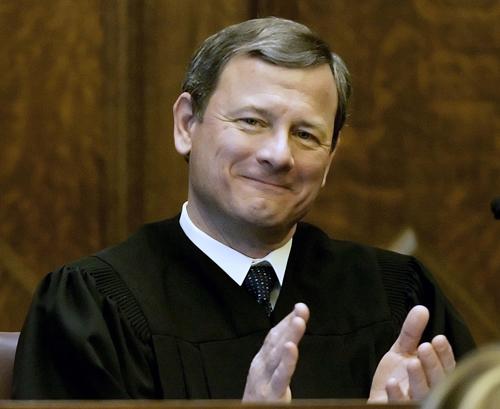Roberts channels his inner Raymond Chandler

Stephan Savoia, The Associated Press
Oct 15, 2008
WASHINGTON – The Supreme Court of the United States. Just after 10 o’clock. John Roberts was working his usual shift. Chief Justice of the United States. Three years on the job. His reputation? Incisive questioner. Good writer. Fast and funny.
Roberts knows his way around an opinion. Even a dissent. Like the one he issued Tuesday. Pennsylvania’s top court threw out a drug bust because the police officer who saw an apparent exchange between two suspects did not have enough evidence to make the arrest.
Roberts wanted his court to take the case and reverse the Pennsylvania ruling. His colleagues disagreed.
While the Supreme Court turns down most cases without comment, Roberts issued a written dissent. In the debut of Supreme Court noir, he recited the facts thusly:
“Narcotics Strike Force, North Philly, May 4, 2001. Officer Sean Devlin, Narcotics Strike Force, was working the morning shift. Undercover surveillance. The neighborhood? Tough as a three-dollar steak. Devlin knew. Five years on the beat, nine months with the Strike Force. He’d made fifteen, twenty drug busts in the neighborhood.
Get The Daily Illini in your inbox!
Devlin spotted him: a lone man on the corner. Another approached. Quick exchange of words. Cash handed over; small objects handed back. Each man then quickly on his own way. Devlin knew the guy wasn’t buying bus tokens. He radioed a description and Officer Stein picked up the buyer. Sure enough: three bags of crack in the guy’s pocket. Head downtown and book him. Just another day at the office.
And with that, the chief justice returned to a more familiar style, noting, “That was not good enough for the Pennsylvania Supreme Court, which held in a divided decision that the police lacked probable cause to arrest the defendant.”





